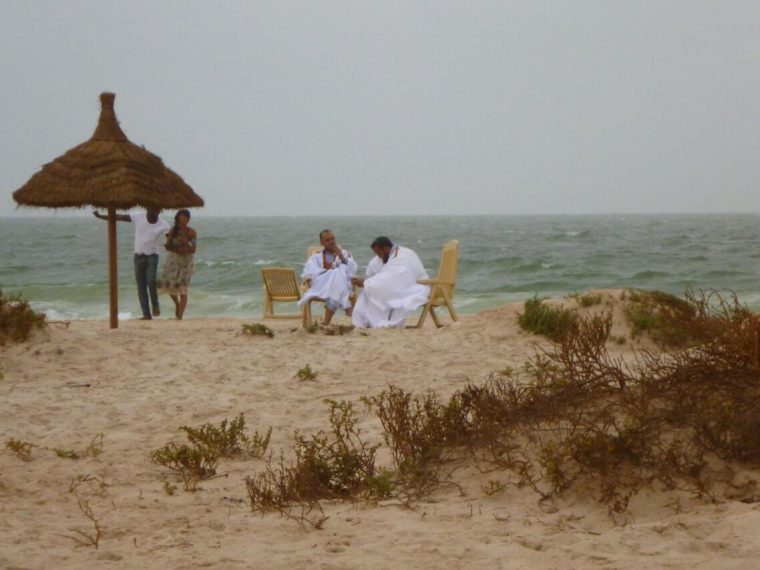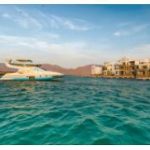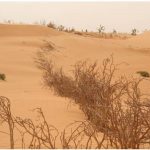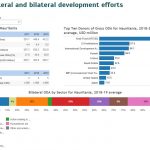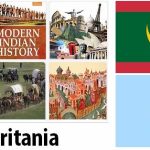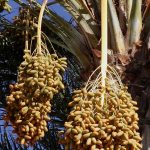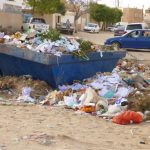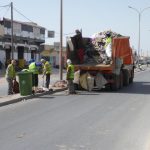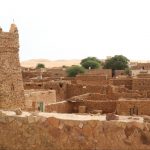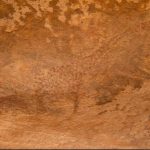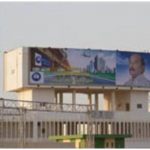Currency: Ouguiya (MRU)
Exchange rate: 41 MRU per € (December 2020)
Time zone: UTC ± 0
Country code (phone): +222
Climate (for capital): dry and warm desert climate
Entry and residence regulations
German citizens need a valid visa to enter Mauritania. The Mauritanian embassy in Berlin has not issued visas since 2016; these are only issued at the international airport in Nouakchott and at a border point near Nouadhibou. It is advisable to contact the embassy before leaving the country and find out about the current regulations. The passport must be valid for at least six months upon entry.
When entering Germany directly, vaccinations are not required. When entering from a yellow fever area (e.g. neighboring countries) proof of a valid yellow fever vaccination is required.
Housing and provision
According to mathgeneral, there are two international schools in Nouakchott: the French School – Lycée Français Théodore Monod – which also has a primary school attached. There are two American schools, the AISN, which is located on the embassy site, and the TLC International School; both schools offer a high school program.
The supply offer in Nouakchott is relatively good. Some supermarkets also have European groceries on offer, but these are considerably more expensive than in Germany. The goods in the markets or in the small shops are limited in selection, but cheaper. Depending on the season, the markets offer a wide range of fruit and vegetables.
Butchers offer chicken, beef, camel, goat, and lamb; Freshly caught fish is available at Port de Pêche.
The supply options outside of Nouakchott are very limited.
The housing market in Nouakchott offers furnished / unfurnished apartments and houses in all price ranges. The Tevragh Zeina residential area is particularly popular with Europeans and Americans.
Energy and water
Energy is supplied by Somelec and water by SNDE. The supply in Nouakchott is relatively stable; Power outages are especially common in summer when air conditioning operations are growing. Devices to stabilize the voltage are recommended, as there are considerable fluctuations. Houses generally have water reservoirs so that supply failures can be bridged.
Money and money transfer
Since January 1st, 2018 the Mauritanian Ouguiya (MRO) has lost a “0” and got the new abbreviation MRU. The National Bank offers the current exchange rate. The import and export of the Mauritanian currency are prohibited.
Foreign currency can be imported and exported by travelers up to the equivalent of US $ 1,000. A higher amount should be declared when importing, as appropriate evidence is sometimes required when leaving the country. More on this at the Federal Foreign Office.
Euro bills can be exchanged in banks as well as at hawkers, whereby a considerable amount of caution is required with the latter.
The use of credit cards is so far not very widespread and not a matter of course even in larger hotels or with airlines and car rental companies. There are several ATMs in Nouakchott, e.g. at the Société Générale Mauritanie and the Attijari Bank Mauritanie, where you can withdraw cash with Visa cards. Credit cards cannot be used outside the capital.
There are numerous Western Union offices in Nouakchott.
Travel, transportation and traffic
The road conditions in Mauritania are sometimes very bad; Most of the road network consists of unpaved slopes, including within Nouakchott.
Possible means of transport are: taxi and minibuses. Public transportation is limited. There is no train, and only in Nouakchott are some bus routes that are used almost exclusively by locals. Taxis operate in Nouakchott, and minibuses can be used overland. Basically, however, you are warned against using them because of the risk of kidnapping. For safety reasons, it is not recommended to drive on country roads after dark; it is even forbidden for most expatriates.
The beaches of Mauritania are very beautiful, but there are usually strong currents.
There are two national parks, Parc Banc d’Arguin in the north and Parc Diawling in the south.
Mauritania has some historic caravan towns and spiritual centers of Islam such as Chinguetti, Ouadane, Tichitt and Oualata, which are UNESCO World Heritage Sites.
A trip to the dunes at the gates of Nouakchott can give an impressive insight into the world of the desert.
Security situation for foreigners
The Federal Foreign Office advises against traveling to Mauritania and expressly warns against traveling to the border area with Algeria and Mali. Basically, there is an increased risk of becoming a victim of kidnapping or acts of violence. In March 2017, the French Foreign Ministry weakened travel warnings for some regions in the south, the center and the Adrar.
The German embassy in Nouakchott recommends travelers to add themselves to the Federal Foreign Office’s crisis prevention list.
Recommended addresses for up-to-date security information:
- Foreign Office Berlin
- British Foreign Office
- American State Department
- US Embassy in Mauritania
- French Foreign Ministry
- French Embassy in Mauritania
Stay healthy
No compulsory vaccinations are required for direct entry from Germany. However, when entering from a yellow fever area (e.g. neighboring countries) proof of a valid yellow fever vaccination is required.
Malaria is very common all year round, especially in the Senegal river area. In the other parts of the country the risk is rather low. Individual advice from a tropical medicine institute is recommended.
The Federal Foreign Office provides further up-to-date recommendations on the most common diseases, preventive measures and vaccination advice.
Medical care in Mauritania – including the capital – is limited. French-speaking specialists in almost all specialties are available. The pharmacies offer a limited range of standard drugs; However, counterfeit drugs do occur. Special medication must be brought from Europe and a medicine cabinet is recommended.
There are private clinics in Nouakchott for emergencies. As a rule, the patient has to be flown out if the illness is more severe. It is therefore very important to have adequate health insurance coverage that is also valid abroad and reliable travel repatriation insurance.
Telecommunication and internet
The use of landline telephones is relatively low. However, the use of cell phones is very common. There are three providers to choose from. Mauritel, the former monopoly who continues to be the sole provider of landline telephony. In addition, Chinguitel and Mattel are in the wireless and internet markets. The cellular networks are stable, but often noisy. The internet supply in Nouakchott depends on where you live, but it is generally efficient and stable. The bill for landline and internet must be paid proactively monthly in the service provider’s office. An invoice is not distributed and the supply is quickly stopped.
